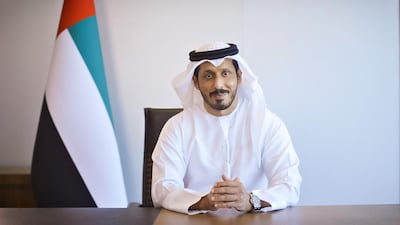Efforts to combat money launderers, entities and people suspected of financing terrorists and organised crime are to be led by a new UAE agency that was launched on Wednesday.
The Executive Office of Anti-Money Laundering and Counter Terrorism Financing, affiliated with the Ministry of Foreign Affairs and International Co-operation, will help protect the integrity of the UAE's financial system and "actively pursue those who abuse it for illicit means", said Hamid Al Zaabi, the director general of the office.
“It’s an important moment for the UAE," he said. "The office will be acting as a national co-ordinator with internal, intergovernmental and international organisations to tackle money laundering and crack down on the financiers of terror."
The launch is part of a nationwide series of measures to tackle money laundering in the UAE.
The office aims at protecting vital financial interests undermined by dirty money, illicit finance and the funding of terrorism.
"The office will be working in tandem with regional and global entities like the Gulf Co-operation Council, the [G7 nations'] Financial Action Task Force and the G20," said Mr Al Zaabi, an accomplished anti-money laundering specialist with 21 years of experience, including extensive work fighting against terrorist financing.
“The UAE has taken serious and impressive strides in fighting money laundering and enacted a set of laws to make sure we exercise maximum oversight.”
The UAE is an alluring destination for investors and companies from around the globe and both Abu Dhabi and Dubai are growing financial centres for the region.
The Financial Action Task Force, the global money laundering and terrorist financing watchdog, said the UAE had "significantly strengthened" its regulatory framework to fight against financial crime.
But it said that as a major financial centre it should take urgent action to cut out the criminal financial flows attracted to it.
The government has already enacted strict laws and established departments to deal with money laundering and financial crimes.
In November, the Ministry of Economy set up an anti-money laundering department. In addition, a court was established in Abu Dhabi to tackle money laundering and tax evasion.
The ministry also oversees professionals in non-financial sectors that are most exposed to the risks of money laundering.
These include independent accountants and auditors, property brokers, companies service providers and dealers of precious metals and gemstones.
The authorities have further scrutinised procedures to make the details of ultimate beneficial owners of businesses registered in the UAE more transparent, to tackle shell companies.
"The Central Bank has also imposed recently financial sanctions on 11 banks for failing in living up to the anti-money laundering standards and mechanisms," said Mr Al Zaabi, who in 2020 led the UAE's sub-committee to combat the financing of terrorism, illicit organisations, and arms proliferation.
“The Cabinet has adopted a new law this year (Law 16/2021) to stipulate fines and administrative penalties for businesses violating anti-money laundering and terror financing laws under the supervision of the Ministry of Justice and the Ministry of Economy."
A speedy economic recovery after the Covid-19 pandemic is a key goal for the UAE, with plans for the next 50 years centred on further growth and development.
In a world of borderless economies, the UAE’s new office is keeping abreast of developments with state-of-the-art techniques to detect and trace money disguised in blockchain transactions.
Terrorists and money launderers became tech-savvy in recent years, with some resorting to digital wallets and cryptocurrencies such as Bitcoin. Many schemes involve sending or receiving funds through bank-like online entities.
“The UAE is more serious now countering money laundering and standing up to those who are tampering with its economy at all levels,” said Mr Al Zaabi.


